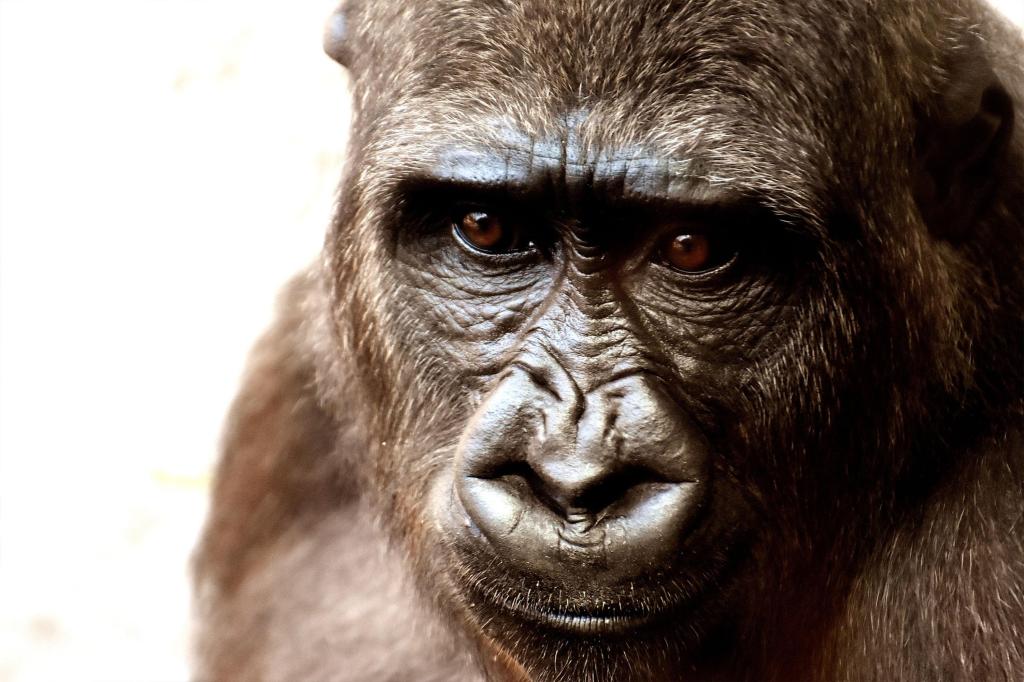Did you know that grief is not just a human emotion? Behaviors of grief have also been observed in other species.
You’ve probably heard stories like the dog lying beside his owner’s casket, but beyond the anecdotes is enough scientific observation to suggest that many animals experience what we could call grief symptoms.
Here are three things we can learn about grieving from the animal kingdom:
1. Getting over a traumatic loss doesn’t happen overnight. Animals have been observed staying near the bodies of companions for days.
While you’re going through the stages of grief, it’s important to remember that your mission isn’t to feel better right away or even as soon as you can.
When cameraman Mark Deeble was following an elephant family in Kenya for the documentary series “Africa,” he observed a mother mourning the loss of her calf. She stayed next to the body for over an hour.
“In a more benign environment, an elephant might mourn for longer,” James Honeyborne, a wildlife filmmaker, wrote in The Daily Mail. “I have heard of animals staying beside the bodies of dead friends for three days and nights, refusing to move.”
Geese, which are notably loyal animals, often mourn in seclusion for a long time when their mate dies. Some will even refuse to take another mate ever again.
Grief is a long and slow process. You shouldn’t put pressure on yourself to get better in a day, or a week, or even a year. There are no time limits to your feelings. As psychotherapist Martha Clark Scala writes:
“You may start to feel better in three months, but don’t be surprised if you’re still miserable, at least some of the time, several months to several years after your loss. The average length of time it takes most people to consistently feel better is about a year. However, it’s also common to feel better for a while and then take a turn for the worse. That can be triggered by events such as special holidays or occasions that have a particular association with the person you’ve lost, especially the anniversary of his or her death.”
Whether it’s anger, guilt, or unbearable sadness, your emotions are what they are. Don’t hide from them or try to push them down. Give yourself the time and space you need to really embrace your feelings. It will help you heal.
2. Having the comfort of close friends nearby can help you process your feelings. Multiple primate species have been observed mourning as a group.
In 2008, a volunteer at a chimpanzee rescue shelter named Monica Szcupider took a now-iconic photograph of chimps lining up at the fence of their enclosure to watch as the body of Dorothy, one of their fellow chimps, was wheeled away.
“Her presence, and loss, was palpable, and resonated throughout the group,” Szcupider said.
When you lose someone close to you, it’s important to remember that you’re not alone, even if you feel that way. Leaning on friends and family can be a key part of the healing process.
A snub-nosed monkey fell to her death in front of her partner at an observatory in China. The rest of her group ran over to her, holding her hand and giving her comfort for nearly an hour as she lay dying. The lead male of her group stayed by her side longer than anyone and kept glancing back at her even once he rejoined his group at a nearby river.
Deaths rarely affect just one person. Being with other people who are feeling the same loss can bring you all closer together as you help each other come to terms with the trauma.
3. Death can be hard to accept. Some animals have been observed participating in behaviors suggesting they’re in denial.
“The first reaction to learning of terminal illness or death of a cherished loved one is to deny the reality of the situation,” writes Julie Axelrod at Psych Central. “It is a normal reaction to rationalize overwhelming emotions. It is a defense mechanism that buffers the immediate shock.”
A gorilla in Germany was documented holding the body of her deceased baby for a week, trying in vain to restore life to him. Dolphins have also been known to carry dead loved ones on their backs for long periods of time, trying to buoy them and get them to swim again.
These stories are tragic, but denial is often a normal part of the grieving process for both animals and humans.
Denial is not the same as refusal to accept reality, though there are certain warning signs you can pay attention to if your natural denial phase is becoming unhealthy.
But getting from denial to acceptance that a loved one has passed is hard, and the road to recovery takes many forms and has many stages. Denial doesn’t mean you’re crazy or unable to cope — it’s just one way the brain can react.
The biggest takeaway? Regardless of species, grief is a totally natural part of life.
Losing someone you love is incredibly painful, and the grieving process means you might be hurting for a long time. But it’s something we go through, humans and animals alike.
You may think you’re wrong for feeling as bad as you do, or for crying as much as you want to cry. You’re not. The confusing, terrifying, maddening, and isolating process known as mourning is both natural and kind of amazing.
It’s amazing because it means you were lucky enough in your life to love someone so much that their loss can hurt this bad. Cherish the happy memories you have. Those aren’t going anywhere.
Death and heartbreak are a part of life for both humans and animals. But so are happiness and fulfillment.
And so is healing.


























































